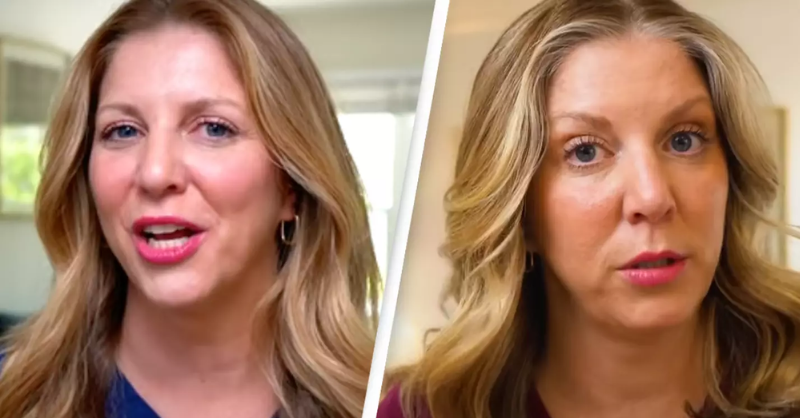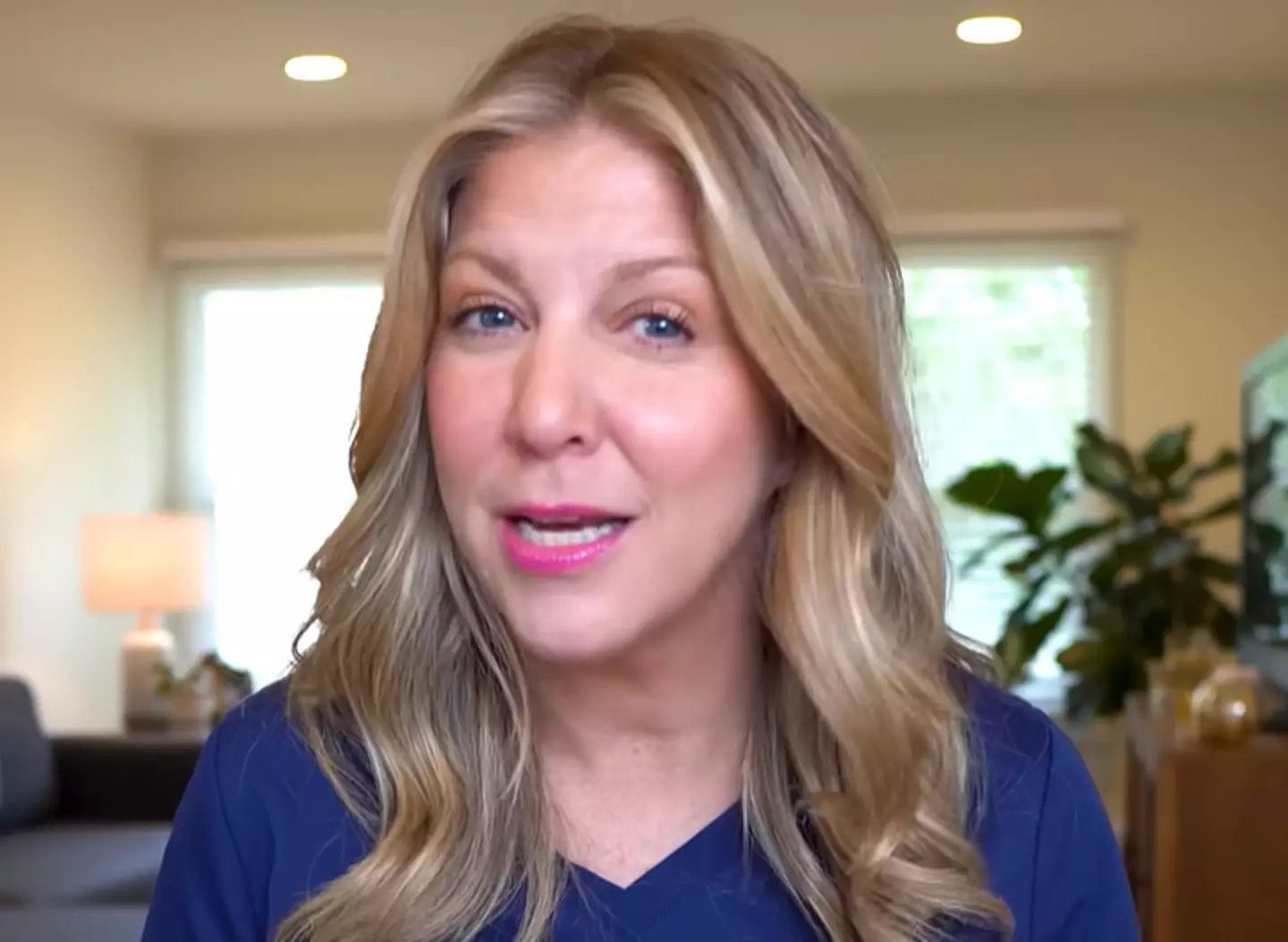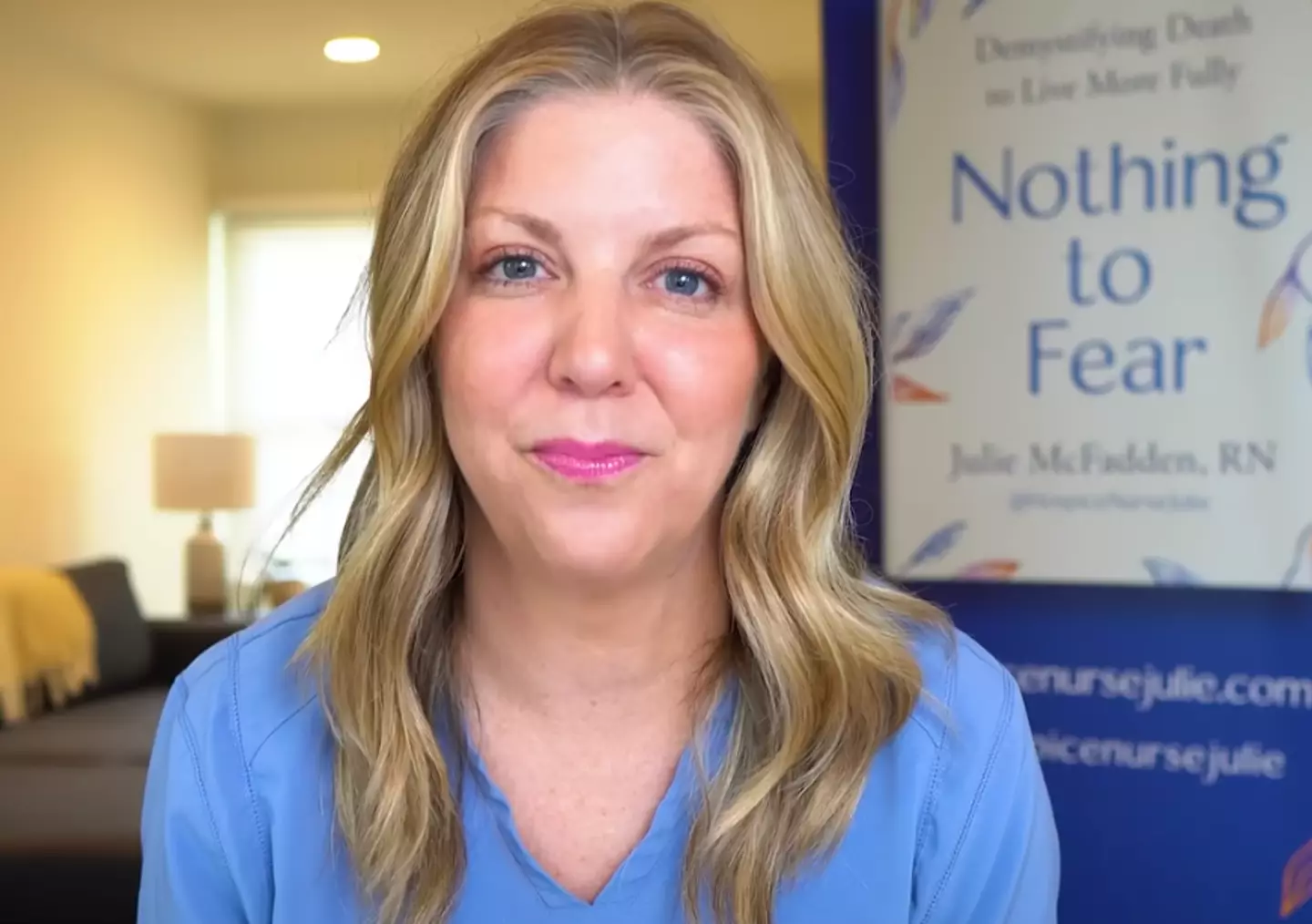A hospice nurse dedicated to alleviating fears around death has shared some of the most common reflections and wishes people express in their final moments.
Julie McFadden, a nurse who cares for individuals nearing the end of life, has not only devoted herself to this profound work but has also written a book and created a social media platform to demystify death and dying.
Though the topic may not initially seem uplifting, Julie has spent years in healthcare, where she discovered “the power each body has to die naturally and how beautiful it really was.” This experience inspired her mission to educate others on the natural process of dying, emphasizing that it is nothing to fear.

Her insights into death have resonated widely, amassing her over 1.5 million followers on TikTok. Earlier this year, Julie appeared on the podcast Disruptors with businessman and author Rob Moore, where she offered deeper reflections on her work. The episode, released on July 15, gave listeners a rare glimpse into what she has learned from witnessing “hundreds” of people pass away during her career, which began in the Intensive Care Unit before transitioning to hospice care.
Julie’s years of experience have granted her a profound understanding of life’s final stages—an experience few encounter firsthand. Through this, she has identified two recurring regrets that people commonly express as they near the end of their lives.
Speaking to Moore, she revealed the first regret: “People often wish they hadn’t spent so much time working.” While this sentiment is relatable, it’s also a difficult balance to achieve given life’s financial obligations.

The second regret, however, is even more common and highlights an area where many of us have greater control. Julie shared, “The main thing people say, that I don’t hear a lot of people mention, is, ‘I wish I would have appreciated my health.’”
Health is often taken for granted when everything feels fine, but illness—whether a mild cold or something much more severe—can swiftly remind us of its value. Having witnessed these regrets repeatedly, Julie has sought to apply her patients’ wisdom to her own life. She now writes a nightly “gratitude list” to reflect on the small but significant blessings often overlooked.

“I like the fact that I can breathe, I’m walking around, I can feel the sunshine—little things like that,” she explained. “I think the biggest thing I hear from people [who are] dying is that they wish they would have appreciated how well they felt before.”
Julie is also candid about why she’s committed to speaking openly about death. “I believe that people should know about the dying process before they’re actually going through it with a loved one or themselves,” she said.
Through her work, Julie hopes to reshape how people perceive and approach death—an inevitable yet profoundly meaningful part of life.

